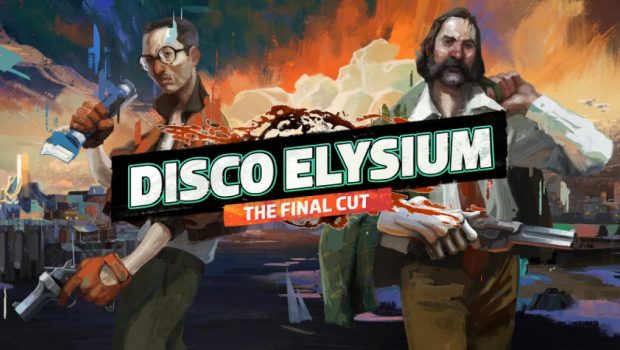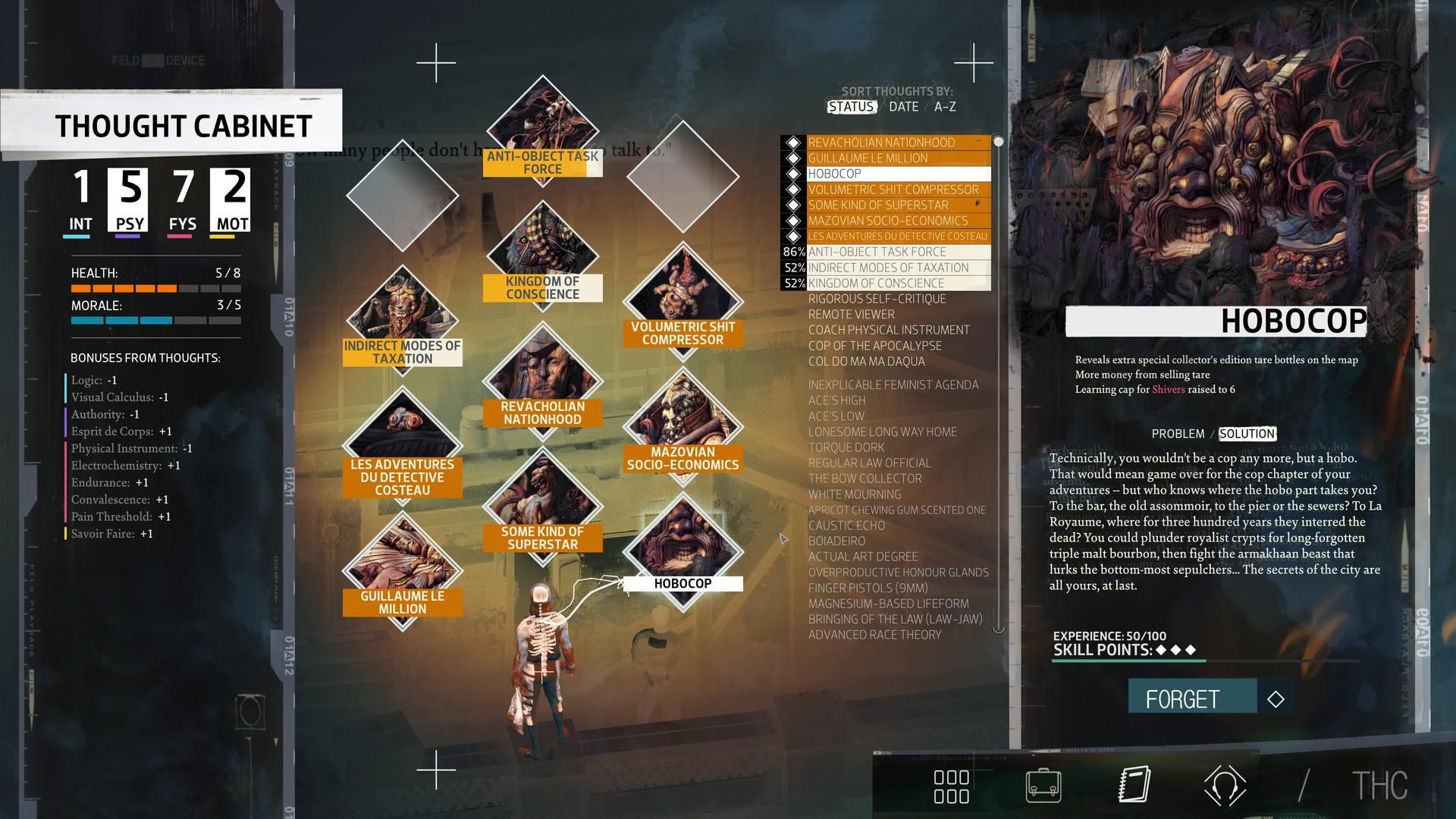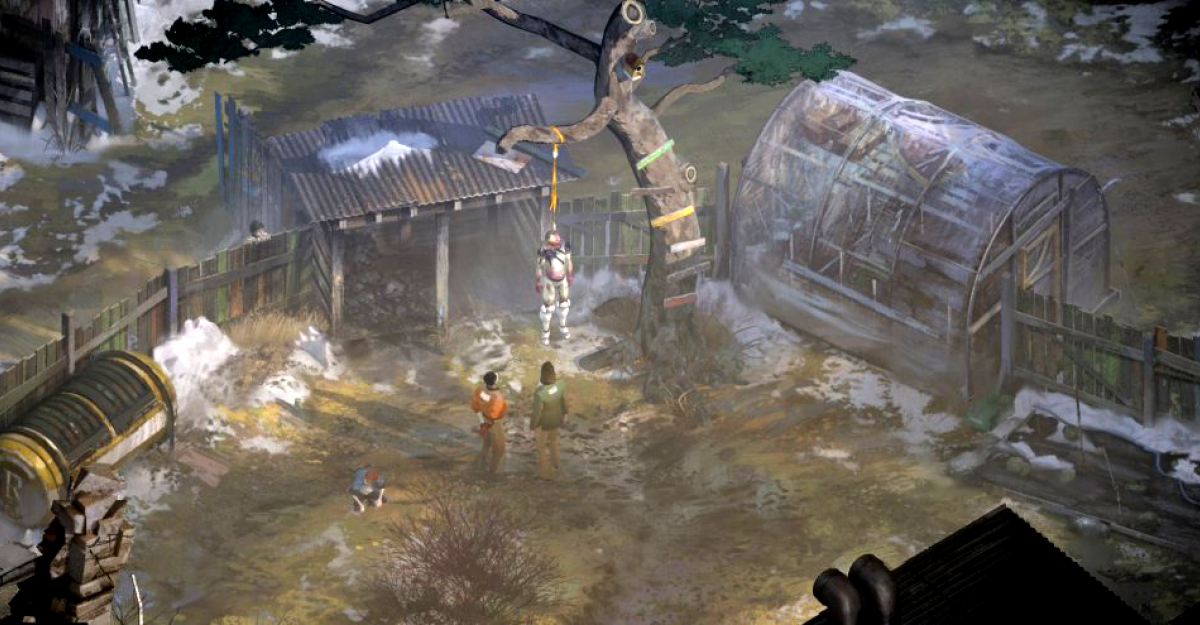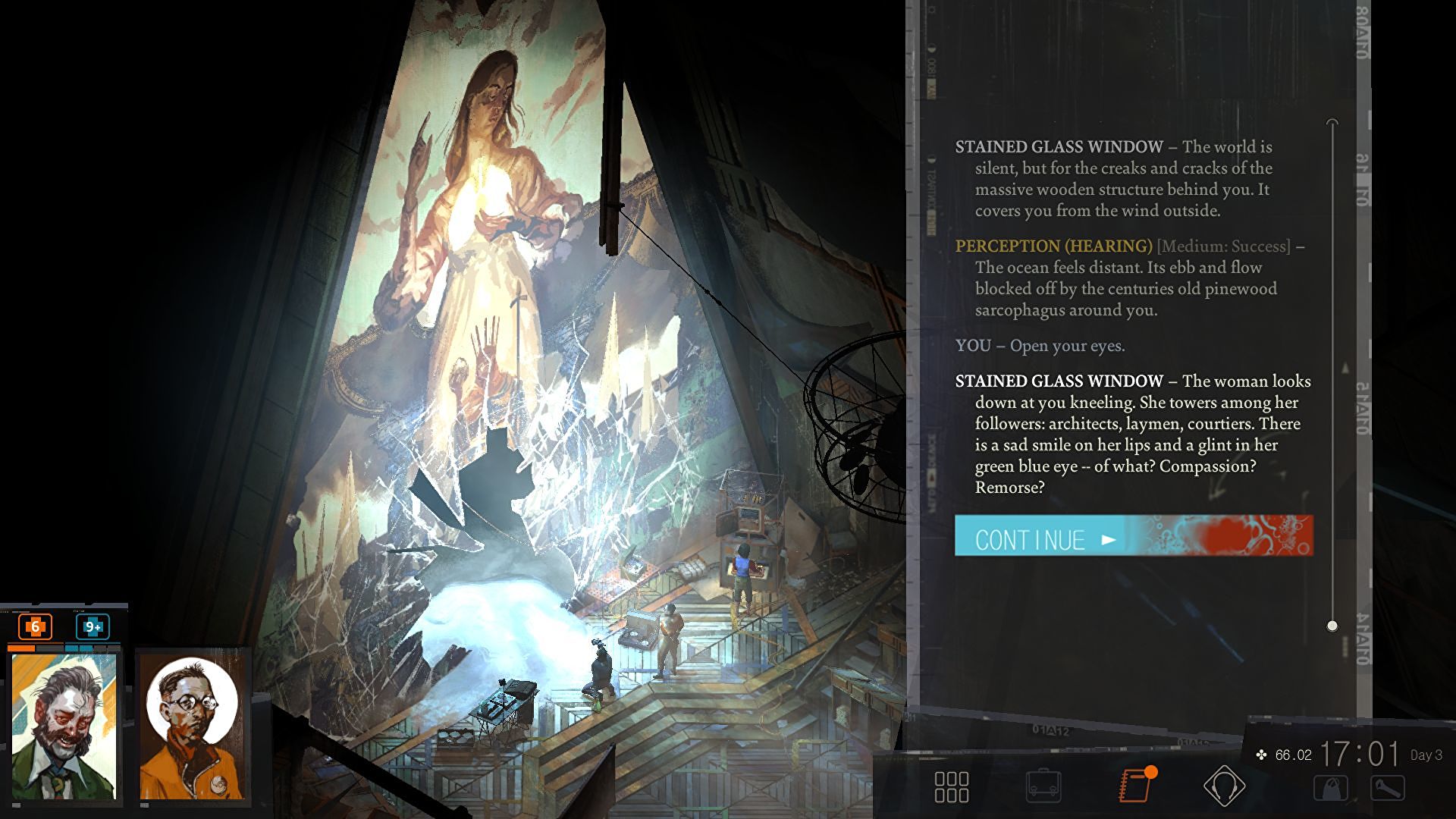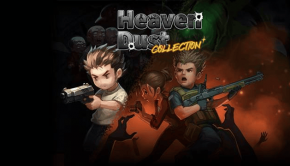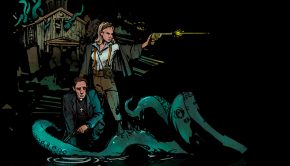Disco Elysium: The Final Cut Review #PS4
Summary: Disco Elysium is a strange, beautiful exploration of the humanity condition
5
An Inspector Calls
Disco Elysium’s biggest victory is its ability to remain engaging after thirty or so hours of reading what’s equivalent to a multi-novel wordcount. Full of interesting characters, an exceptionally well realised storyline and a compelling character-building system, it’s an often bleak, always funny, Dungeon’s & Dragons-type RPG that’s completely unmissable, providing you can stomach the slow pacing.
You take control of a detective, who, after waking up following a heavy night of alcohol abuse, finds he has no memory of the previous night, or, in fact, any memories at all. If you think amnesia is an overused shtick, you’d be right, but for Disco Elysium it’s a plot device that works well. With the help of your new partner, everything is unravelled though exploration and conversation, both with the people of Revachol and your internal, self-deprecating monologue.
It doesn’t take long to gather several key facts; you’re staying in a room above a cafeteria, you’re working a murder case and you’re potentially a terrible detective. The latter point is really, up to you. One of the most captivating things about Disco Elysium is the character sheet, which essentially acts as a dip into the psychology of the player. It’s, on the surface, a complex system with a sharp learning curve, but it’s impressive, once you get the hang of it. For example, increasing physical traits such as Endurance will give you more health, as well as improving your tolerance to drugs and alcohol. Alternatively, you can focus on intellectual skills, such as Logic, making you an all-round better cop. On the flip side, however, putting too many points in a skill can have a negative effect – pool too many points into the Drama skill and you’ll react, well, overdramatically. Same goes for increasing your Perception too much, which can overwhelm your detective.
As well as the character sheet, not long into your adventure, you’ll unlock the use of the Thought Cabinet. It’s further testament to Disco Elysium’s commitment to telling the human story, as equipping one of the 53 thoughts gives your detective what are essentially personality building traits. Not only do they increase stats, they often unlock new conversation options, as well as providing other rewards, such as access to previously locked skill checks.
Much of Disco Elysium is trial and error, a beautiful, miserable, balancing act. I started the game twice over, before I fully got to grips with how I should react to different conversational beats, and how I should spend my character points. Luckily, you can revert anything you’ve spent, but often it comes too late, as conversations in Disco Elysium can sometimes go awry, and before you know it, you’re handing over your detective badge and the games hitting you with an ending screen. While it autosaves, I found myself keeping fresh manual saves before any new character encounters, just in case I managed to screw it up.
All of this plays right into the game’s role-playing ethos, as when you’re not engaging in conversations and exploring the city, you’re completing skill checks to determine the outcome of situations. These range from successfully spotting a lie, to unlocking major clues about your investigation. Some checks can only be completed once, but most can be repeated once you’ve increased your skills, helping you uncover the truth of the hanging body behind the Whirling-In-Rags cafeteria-come-hostel. Obviously, improving your skills increases your chances of successfully nailing checks, so thoroughly exploring your surroundings and talking to everyone is key.
In a similar vein to Paradise Killer, another equally well-received crime solving adventure, Disco Elysium omits any combat, focusing solely on progression through conversation. There is, however, a tonne of exploring to be had, and delving into the nooks and crannies of the watercolour-like environments is almost as fun as getting to the bottom of the case. That’s not to say this is the best iteration of Disco Elysium – it’s clearly meant to be experienced on PC, but it’s a good port nonetheless. Occasionally, you’ll find yourself awkwardly walking around lampposts to get to the spot you need to be to engage in conversation, or to pick up an item. It’s a little fidgety, but nothing that takes the shine off the overall experience.
But gameplay quirks aside, its rich, quasi Eastern European world, absolutely brimming with its own history, beliefs, language and politics is enough to dispel any naysayers. What’s more remarkable than the sheer scale of it all, is that the developers have created a universe that’s fully engaging. Some characters are quick to talk about the world’s archipelago, the story of the revolution, or the rich, diverse world politics. Even though some of these threads didn’t tie into the game’s main storyline, I found myself engrossed the whole way through; the game was simply offering me more of this unique world, and I was lapping it up.
It’s where the amnesia aspect really comes into its own. Your character has forgotten everything, including his name, so this strange but eerily similar to our own world is ripe for exploring. Personally, I found it much more interesting to have these extra morsels enrich the story during dialogue trees, instead of shoehorning walls of text in boring lore books, like a lot of RPGs are known for.
All in all, I was genuinely surprised that the slow pace didn’t really bother me at all. Almost all the conversations I had (both internal and with townsfolk) were completely interesting, sharply written and engaging. There’s some fantastic narrative beats, and even more laugh out loud moments, from your first meeting with the strange boy Cuno, to embarrassing yourself in fistfights while dealing with a political dispute.
It’s also an incredibly raw and human story, with plenty of heart. While, at least to begin with, having your internal monologue take chunks out of your detectives is funny, it doesn’t take long before you begin to really care about your back story. It’s testament to good writing, but depending how you react to situations, you can take your detective on a journey of self discovery that’s, actually quite touching. Really, it doesn’t matter who the detective is, the detective’s name, his background; it just matters who your detective is.
And if you enjoyed Disco Elysium’s main storyline as much as me, the Final Cut also includes several new quests and locations, focused on the game’s strong political backbone. Interestingly, you can shape your detective to follow a political alignment of your choice. Perhaps though, the most important inclusion to the Final Cut is voice acting for every character, and honestly, I couldn’t imagine playing Disco Elysium without it.
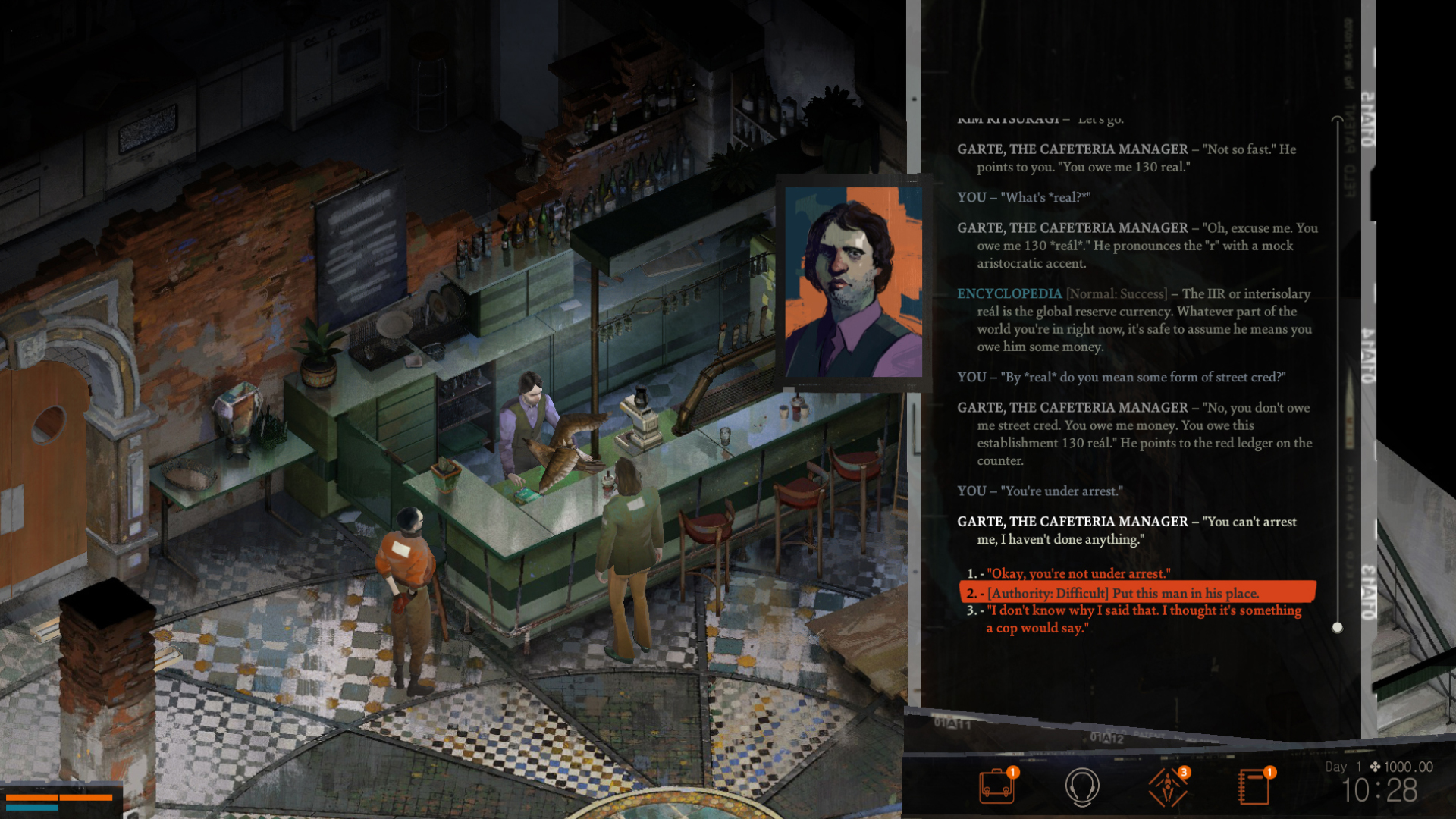
Complimenting the whole package is the gorgeous, oily, smudged visuals, the perfect companion to the grimy world you’re exploring – oh, and a soundtrack by British Sea Power? The perfect Post-Punk revivers to solve crime to.
Final Thoughts?
If you’re worried that Disco Elysium might be too slow for you, you’re probably right. It’s a visual novel through and through, where 90% of the gameplay is reading. It doesn’t skip any big issues, it doesn’t mind reminding you about the human condition, right after making you giggle uncontrollably; it wants you to be engaged, intoxicated, and uncomfortable. If you value engaging writing and exceptionally gorgeous graphics over a fast paced RPG, Disco Elysium is an adventure absolutely worth investing in.


